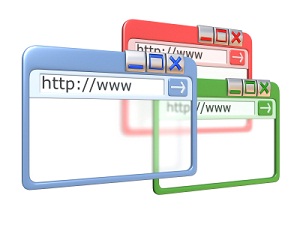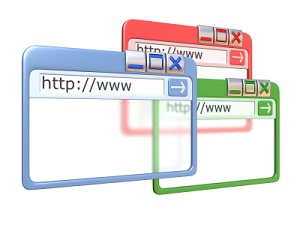Career Profile: Web Designer

 Why Is Web Designing a Job of Tomorrow?
Why Is Web Designing a Job of Tomorrow?
Technology has pervaded every aspect of modern life. It
has largely replaced cash with credit cards that can draw funds electronically from bank accounts, replaced beepers with handheld mobile phones that can not only instantly connect callers, but also act as a tiny web browser and gaming system, and pushed globalization into overdrive through the World Wide Web. With personal computers as common in businesses as pots of break room coffee, the race is always on to push computer technology further. More and more businesses are going on the Internet to conduct business, and this trend shows no signs of slowing down. As a result, web designers who can help businesses build functional and efficient web pages are in high demand. Web designer salaries are based heavily on their level of skill and education, as well as the particular projects they work on. For example, designers with less than a year of experience earn an average of $37,215 annually, while designers with at least five years of experience earn an average of $48,754 annually, according to PayScale, a company that specializes in compensation data.
What Does a Web Designer Do?
Web designers are responsible for the presentation of content on web pages. They work with clients to produce a layout that best exemplifies the client's brand image without sacrificing aesthetics, readability, or function. Web designers can build web pages for a myriad of topics, including portfolio sites for other artists, company sites for investors to view, and online retail shops to conduct business. In all of these differing niches, a web designer's goal remains the same: to produce a website that is unique and functional. Much like laying out the presentation of a newspaper or magazine, web designers strive to strike a balance between aesthetics and utility in every site they build. They must work with markup languages like HTML and XML, style sheet languages like CSS, scripting like JavaScript and PHP, and database technologies as well as multimedia technologies to create the best possible sites for clients as well as visitors to those sites.
What Kind of Training Do I Need to Become a Web Designer?
There are no set education requirements for web designers, but most employers prefer those who have a substantial professional or educational experience in the field. With more formal education, such as a bachelor's degree in web design and multimedia, web designers are more likely to advance to better paying and higher ranking positions within a company, or work with more high-profile clients. A bachelor's degree takes four years to earn, and covers topics such as computer coding, database design and development, image editing, and other related courses.
Other Jobs in Business
Job Opportunities
- Computer Support Specialist
- Database Administrator
- Electrical and Electronics Engineer
- Information Manager
- IT Project Manager
- Network Administrator
- Network Security Consultant
- Software Developer
- Software Product Manager
- System Engineer
- Technical Writer
- Telecommunications Network Engineer
- Web Designer
- Web Developer